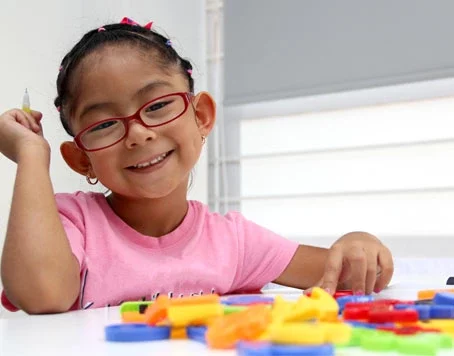Heading back to school is a delicate time for children with special needs. It is filled with excitement, hope, and also tension – especially for parents of children with autism. Parents always want to ensure a smooth transition for their kids with special needs. This transition needs careful planning, empathy, and patience.
There are many many questions parents have when it comes to the back-to-school phase. Today we have 5 such frequently asked questions from parents and helpful answers(including tips) to make the back-to-school season for children with Autism as smooth as possible.
1. How to help my child with the school routine?
This is a very common question. Well, for that you need to set a routine early. You can set a daily schedule a few weeks before school starts. This schedule should include consistent wake-up, meal and bedtime hours. When your child gets into this set-up routine, it becomes a visual schedule for them. You can use pictures or a calendar to show your child what each day will look like – Like which days are school days, which are weekends, and after-school activities – so they have a clear idea of what to expect.
2. How can I introduce my child to a new teacher?
Yes, this is a real concern for almost every parent having a child with autism. Ideally, you can set up a meeting with the teacher before school begins. Many teachers welcome the opportunity to meet students one-on-one in a quieter setting. Don’t hesitate to share your child’s strengths, interests, and any specific needs they have. You can also schedule a video call where the teacher can interact with the child. Another thing you can do is bring along a short, written introduction about your child to help out the teacher even more.
3. How can I prepare my child for changes in the school environment?
Yes, you must help your child prepare for the sights, sounds and routines of school. If it is possible, visit the school together a few times before the first day comes. Let your child walk through the classroom, cafeteria, and any other spaces they’ll use frequently.
4. What if my child struggles with anxiety or social interactions?
For autistic children, social situations can be challenging. But, you can help your child take baby steps to make improvements and have better control over situations. Tell social stories like simple narratives about various scenarios. This can prepare your child for things like greeting classmates, waiting their turn or asking for help.
Role-playing at home also builds confidence, and teaching a few basic coping strategies, like deep breathing or squeezing a fidget toy, can calm down your child. Talk to the therapist and get advice on appropriate coping strategies and ways to reinforce positive behaviors.
5. How can I help my child with sensory sensitivities at school?
This is very serious. And, you must discuss sensory needs with the teacher and school staff.
It’s quite common among autistic children to become over-sensitive to certain sounds, specific textures or even lighting. But, as a parent, you can help your child deal with this issue. Here’s how you can do it. You can discuss with the therapists and discover the best possible ways to help your kid remain calm. The therapist can create a “sensory toolkit” and this toolkit can have items like a fidget spinner, stress ball, etc that can comfort the child at that moment. But, it’s important to discuss this with the teacher and let the teacher know about sensory issues.
Final Words
Guiding your child with Autism for school may take extra planning, more patience, and clear communication. For a few kids, parents may need to put in extra effort. And, that’s okay!
We at Hope AMC, offer therapeutic care and result-driven treatment for children with Autism, other neurological disorders or other conditions.
We have board-certified therapists on our team. We offer ABA therapy, occupational therapy, speech and language therapy along physical therapy for children with Autism and other conditions.
Our clinic does not focus on general or one-size-fits-all therapy approaches. We design a one-of-a-kind therapy for every specific child to fill his/her individual needs. We collaboratively work with parents, caregivers and teachers to make a tailored therapy plan to help the child at home, school and in other settings.
Visit our website to discover more about our therapy programs! Or, book an initial consultation today!






